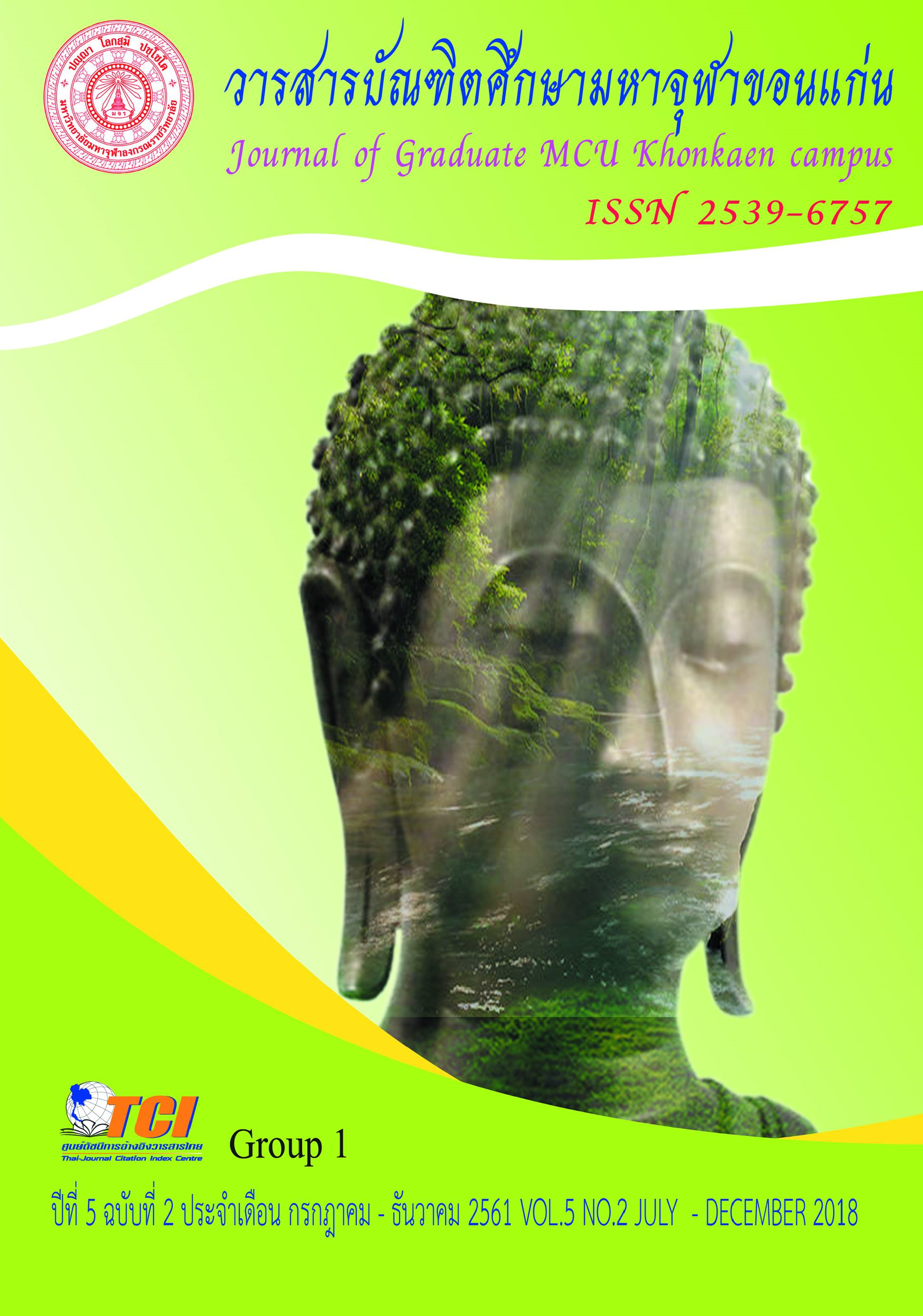การเจรจาไกล่เกลี่ยระงับความขัดแย้งในทัศนะพุทธปรัชญา
Main Article Content
Abstract
บทความวิชาการนี้มีวัตถุประสงค์เพื่อศึกษาการเจรจาไกล่เกลี่ยระงับความขัดแย้งในทัศนะพุทธปรัชญา พบว่า ความขัดแย้งเป็นธรรมชาติของมนุษย์ ซึ่งยากที่จะหลีกเลี่ยงได้ การเจรจาไกล่เกลี่ยเป็นรูปแบบสำหรับจัดการปัญหาความขัดแย้ง และการสร้างสัมพันธภาพที่ยั่งยืน ซึ่งเป็นเป้าหมายสูงสุดในการจัดการความขัดแย้งทางพุทธปรัชญา กลไกที่สำคัญของการเจรจาไกล่ที่สำคัญในการจัดการความขัดแย้ง คือ “กัลยาณมิตร” ซึ่งเป็นบุคคลที่สามที่สามารถทำให้เกิดการบรรลุข้อตกลง และขจัดความขัดแย้งลงได้ โดยความสมัครใจของคู่กรณีเองทั้งสองฝ่าย ซึ่งก็หมายถึงว่าคู่กรณีนั้นต้องเกิดความเห็นชอบยอมรับ คิดพิจารณาได้ด้วยตนเอง นั่นก็คือ คู่กรณีทั้งสองฝ่ายเกิด “ความเห็นที่ถูกต้อง” ซึ่งเป็นการครบกระบวนการของปัจจัยแห่งการสร้างสันติสุข และสลายความขัดแย้ง ที่จะนำไปสู่เป้าหมายสูงสุดของการเจรจาไกล่เกลี่ย
This article aims to study the negotiation of conflict resolution in Buddhist philosophy. It is difficult to avoid. Mediation is a form of conflict resolution. And building lasting relationships. This is the ultimate goal in Buddhist conflict management. The key mechanism of negotiating a major deal in conflict management is the "Kaliyamitr", a third party that can achieve the agreement. And eliminate conflict. The volunteers of the parties themselves. Which means that the party must
agree to accept. Considering that the two parties are parties. The "right opinion", which is a complete process of the factors of peace. And break the conflict. That would lead to the ultimate goal of mediation.

